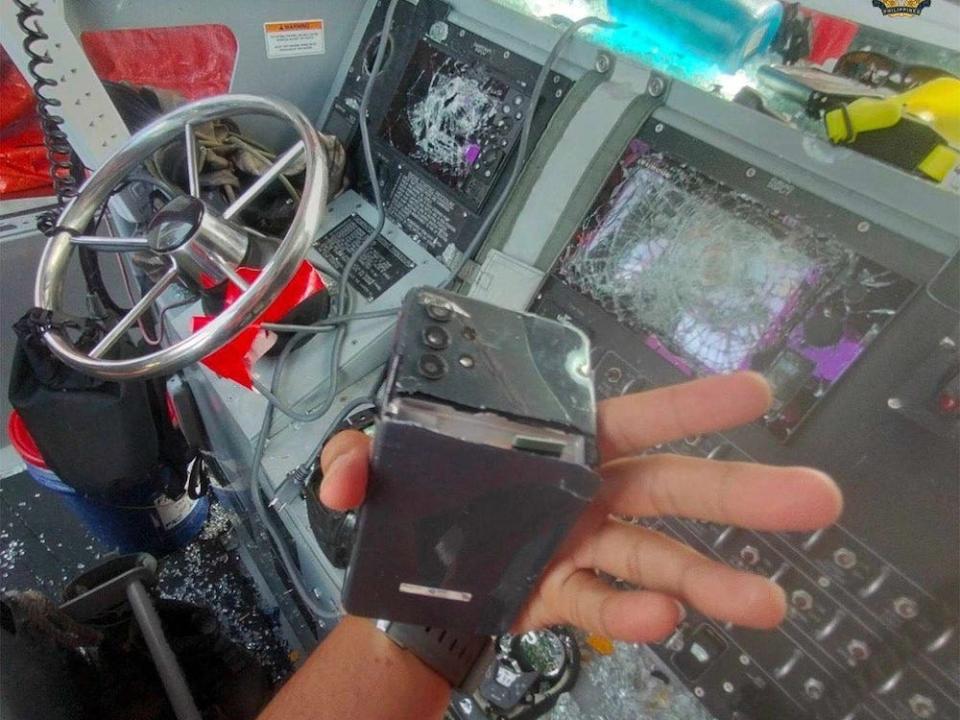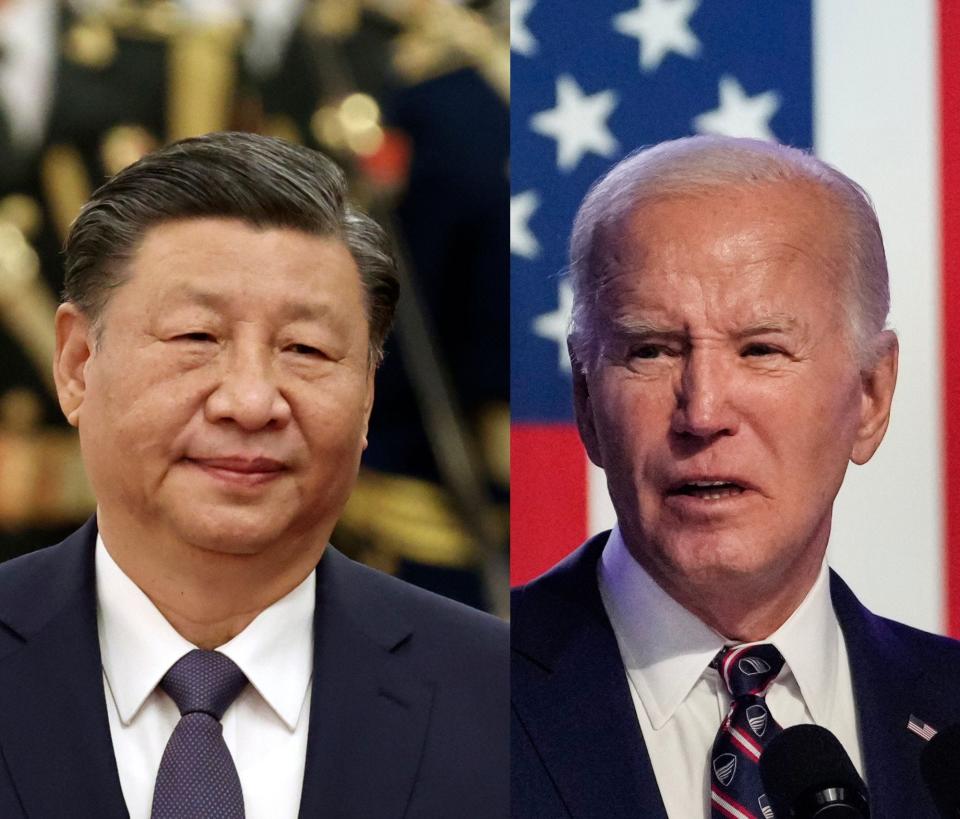China's ax-wielding clash at sea with the Philippines is a way to 'exhaust' it into accepting territory claims, expert says
China's escalations in the South China Sea aim to "exhaust" other countries, an expert told BI.
On Monday, Chinese coast guards harassed Filipino boats, part of a string of recent provocations.
It's Beijing's way of pushing but coming just "short of actual conflict," Sari Arho Havrén said.
China's latest maritime provocation — which saw weapons including an ax being wielded at Filipino sailors earlier this week — is part of attempts to "exhaust" neighboring countries into accepting its claims over contested waters, an expert told Business Insider.
The incident on Monday is the latest "gray-zone" skirmish in the South China Sea, where China has increasingly used nonlethal but highly provocative measures to harass other countries there.
China has claimed sovereignty over the South China Sea for decades, a claim that was roundly rejected in the Hague in 2016.
On Saturday, it enacted a law allowing its Coast Guard to seize foreign ships suspected of trespassing, CNN reported.
"China wants to change the status quo by force — exhaust the countries to give in to their claims," Sari Arho Havrén, an associate fellow specializing in China's foreign relations at the Royal United Services Institute, told BI.
She said that the latest move by China also fuels the Philippines' fear of provoking a war if it responds.
CCG personnel violently attached ropes to tow the AFP's RHIB while threatening to injure an AFP soldier w/ a pickaxe. They also employed blaring sirens to create chaos, disrupt communication, and divert the attention of AFP troops, exacerbating the hostile & dangerous situation. pic.twitter.com/a8cPaGGH8j
— Armed Forces of the Philippines (@TeamAFP) June 19, 2024
On Wednesday, the Armed Forces of the Philippines released images and video from Monday's alarming maritime clash, in which the China Coast Guard was accused of having "illegally boarded" and "looted" Filipino boats.
One Chinese coast guard can be seen waving an ax in the footage, while others threatened Filipino sailors with "bladed and pointed weapons" as sirens blared, the AFP claimed.
Further images show smashed equipment and slashes to the rubber boats.
Both the Philippines and its allies — including the US — have condemned the incident, which took place in the Ayungin Shoal, a contested atoll in the South China Sea some 120 miles from the Filipino Palawan Island.

China described its actions as "professional, restrained, justified and lawful."
It comes after several other aggressive acts from Beijing in the South China Sea in recent months, involving lasers, water cannons, maritime militias, and even the alleged poisoning of fishing waters.
They have provoked international condemnation, but have been considered below the threshold of an act of war.

Until Monday, China had never forcibly boarded another country's ship, Collin Koh, a research fellow at the S. Rajaratnam School of International Studies in Singapore, told CNN.
The fact it happened this time is significant, he said, because although they were just small rubber boats, they're still part of the Philippines' navy — and therefore seen as sovereign space.
"That is very dangerous, because, if anything, that could even be construed as an act of war," he said.
Havrén told BI that it was a very serious escalation, but hesitated to call it an act of war.
This style of aggression limits the action to just "short of actual conflict," she said — allowing China to probe the limits of provocation without crossing the line.
She said that China has become "increasingly assertive and confrontational" in the waters around Japan, Taiwan, and the Philippines since Xi Jinping came to power in 2013.
This is partly prompted by Chinese irritation at increased US involvement in the region, she said.
Several cooperation agreements have been signed between the Biden administration and the Indo-Pacific, building on other long-standing agreements.

Beijing is "obsessed by the rivalry with the US," concerned that the White House is bent on limiting China's rise to power, Havrén said.
"There is a clear appetite for expansion and to push the US away from the region," she said.
This is a challenge for the US, which is already wrapped up in conflicts in Gaza and Ukraine, and is trying to calm down China's escalations around Taiwan.
"The more the US focus is stretched, the easier it is for China," Havrén said.
Xi has accused the US of trying to trick China into invading Taiwan, the Financial Times reported earlier this month.
Xi's reported comments essentially set the stage for a convenient blame game if a conflict is eventually triggered.
"I think this kind of applies to the situation with the Philippines as well," Havrén said.
"China does feel the pressure" from having US-backed hostile nations surrounding it, she said.
Havrén added that this will only accelerate the division between the US and China — and that countries may have to think about whose side they're on.
"The countries in the Pacific have been fairly reluctant to take sides," she told BI, "but this kind of aggression from China's side definitely puts more pressure on them to think about how to balance China's behavior."
Read the original article on Business Insider

